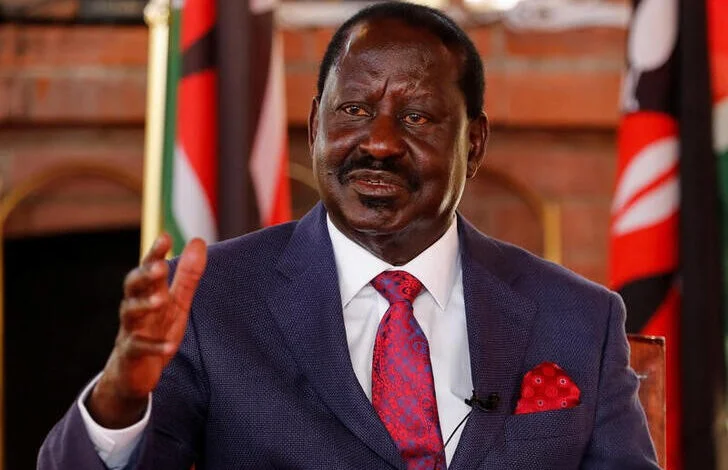Former Kenyan Prime Minister Raila Odinga has called for an urgent intergenerational national dialogue to address Kenya’s socio-political and economic crisis, which has seen thousands troop to the streets in protests over recent months.

As Kenyans marked the 35th anniversary of the historic Saba Saba protests on Monday, Odinga noted that Kenyans are still grappling with many of the same issues that sparked the 1990 demonstrations, including economic hardships and human rights violations.
He proposed the establishment of what he called a national conclave to chart a new path for the country through collective civic engagement and reform.
“The most important struggle is for good governance and economic opportunities,” Raila, who was among the vocal young political leaders opposing then-President Daniel Moi’s regime in the 1090s, said.
He urged Kenyans to choose unity over unrest, saying, “Do we embrace chaos, or a coming together of minds and a country? As a living architect of the events leading to Saba Saba, I choose a coming together of minds and a country in the interests of the country.”
At the centre of his proposal is a broad-based, intergenerational ‘national conclave’ that would gather voices from across the political, generational, and regional spectrum.
This forum must be tasked with crafting “irreducible reforms and changes necessary to take the country forward,” said Odinga, and should culminate in a referendum to give citizens the final say.
He outlined four key pillars for the proposed civic dialogue: deliberation through the conclave; police reforms; transparency and a renewed fight against corruption; and youth empowerment and economic inclusion.
“You know a rogue police force that shoots people with impunity; this is a force that we inherited from the colonialists,” Odinga told reporters, calling for urgent reforms to build public trust in security agencies amid recent cases of police brutality during the youth-led protests.
The conclave, he added, should be led by “the most serious and sober minds in our nation.”
The Saba Saba movement, named after the date July 7, honours the moment in Kenya’s democratic history when citizens took to the streets for the approval of multiparty democracy, leading to the repealing of Section 2A of the constitution.
Before then, Kenya was a one-party state under Moi’s Kenya African National Union (KANU) regime.






